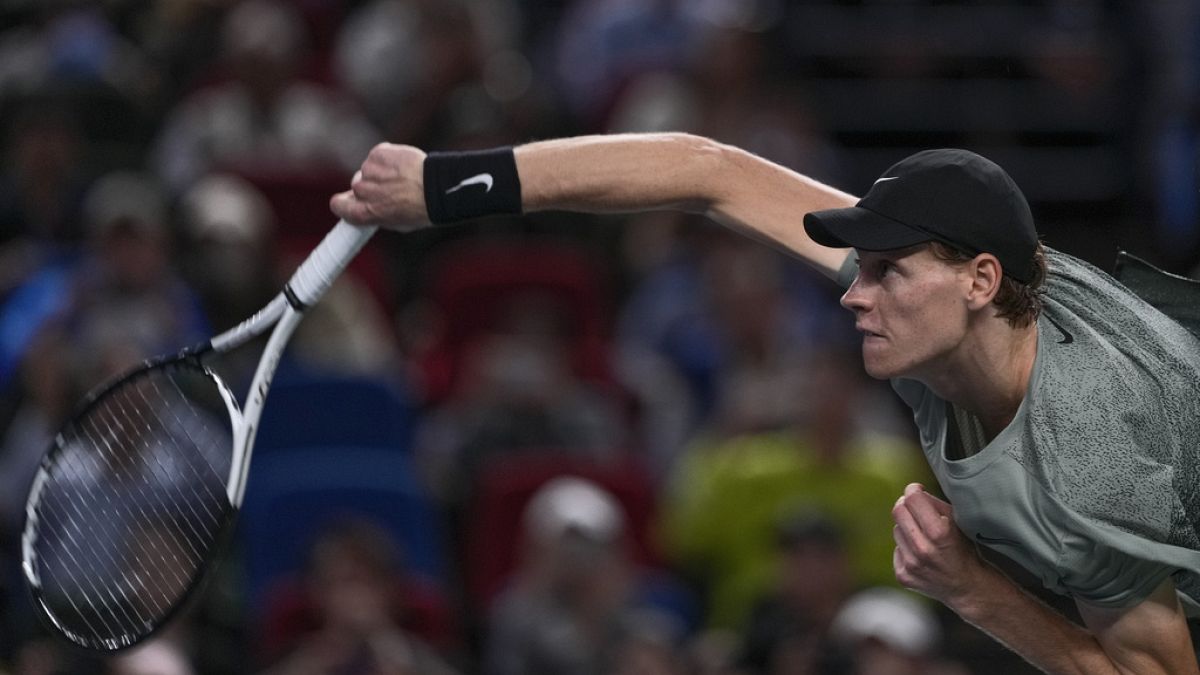Jannik Sinner beat Carlos Alcaraz 6-7 (5), 6-3, 6-3 for the championship on Saturday after Novak Djokovic topped Rafael Nadal 6-2, 7-6 (5) in the third-place match.
Sinner gained the biggest payout ever in tennis history for the match – 5.5 million euros.
While Sinner and Alcaraz probably have plenty of future matchups in store, Djokovic and Nadal may have been playing for the final time in one of tennis’ great rivalries.
Djokovic won the match between rivals who have combined for 46 Grand Slam singles titles. Nadal, who won 22 Slam titles, is planning to retire after playing for Spain next month in the Davis Cup.
They shared a warm embrace at the net after Djokovic’s victory. He also beat Nadal in the Olympics and had a 31-29 lead in their head-to-head.
“The last dance was an epic one,” Djokovic wrote on social media. “And of course emotional. I’ll cherish our rivalry forever. Tennis will miss you.”
Sinner then emerged with a victory over Alcaraz in a matchup between the winners of all four major titles this season. The top-ranked Sinner, who had lost all three meetings this season, collected 5.5 million euros for the win.
“Until now, every match was very, very good, but we will always hope this rivalry will last as long as possible,” Sinner said.
Alcaraz beat the Italian on 2 October to win the China Open in Beijing, along with semi-final victories at the French Open and Indian Wells. The Spaniard has a 6-4 lead in their head-to-head on Tour.
“I will try to do my best every day … to hopefully make this rivalry better and better over the years,” Alcaraz said.
Alcaraz defeated Nadal and Sinner topped Djokovic in the previous round of the exhibition event, which awards money rather than ATP ranking points in Saudi Arabia’s latest foray into tennis.
Is Saudi Arabia “sportswashing?”
After holding many major international competitions critics allege that Saudi Arabia is guilty of “sportswashing,” which refers to countries’ attempts to gain positive global news coverage to improve their reputations.
In recent years, Saudi Arabia has enacted wide-ranging social reforms, including granting women the right to drive and largely dismantling male guardianship laws that had allowed husbands and male relatives to control many aspects of women’s lives. Men and women are still required to dress modestly, but the rules have been loosened and the once-feared religious police have been sidelined. Gender segregation in public places has also been eased, with men and women attending movie screenings, concerts and even raves — something unthinkable just a few years ago.
Still, same-sex relations are punishable by death or flogging, though prosecutions are rare. Authorities ban all forms of LGBTQ+ advocacy, even confiscating rainbow-coloured toys and clothing.
So far this year more than 200 people have been executed in Saudi Arabia, according to Human Rights Watch.
Thanks at least in part to social media, women in Saudi Arabia, and elsewhere in the Arab world, are aware of the gap between their lives and those of women in less restrictive societies. But Saudi women who seek to carve out some freedom for themselves have been punished.
Even as the government has enacted top-down reforms, it has severely cracked down on any form of political dissent, arresting women’s rights activists and other critics and sentencing them to long prison terms and travel bans, sometimes on the basis of a few tweets.
Saudi Crown Prince Mohammed bin Salman has worked to get himself out of international isolation since the 2018 killing of Washington Post columnist Jamal Khashoggi. He also clearly wants to diversify Saudi Arabia’s economy and reduce its reliance on oil.
What is not clear is how much any particular sports deal might influence the kingdom’s approaches to women’s and LGBTQ+ rights.

